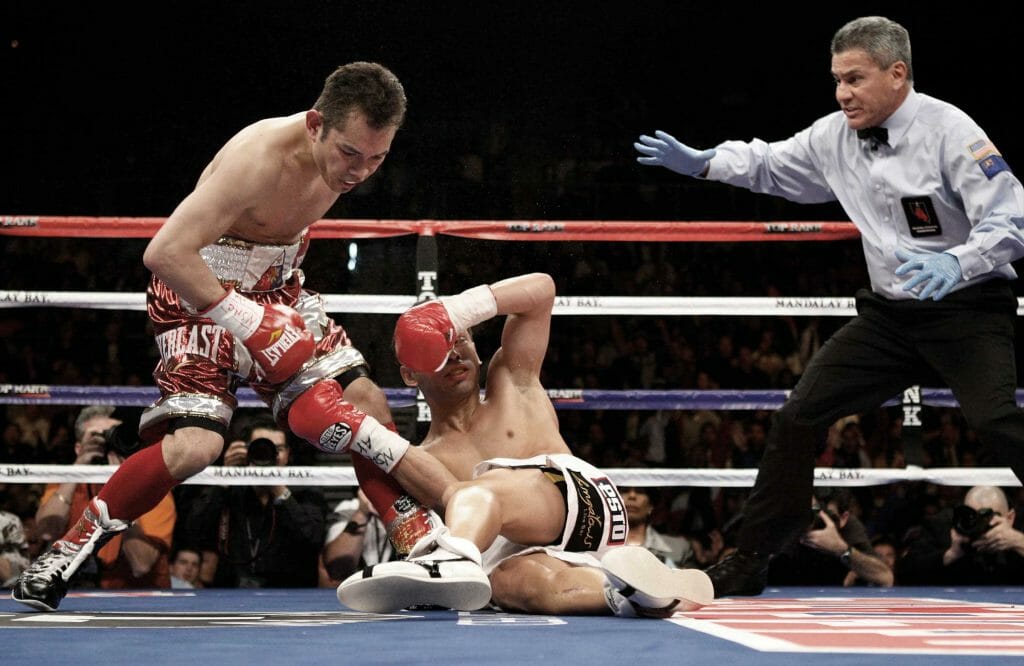
Boxing has long been referred to as the sweet science and the noble art of self-defence, but when it comes down to it, it is just two individuals fighting in a ring for some prize, trophy, or reward. But what does this metaphor mean? What does the sport of boxing say about the world we live in today? And more importantly, how can you use this knowledge to your advantage in your everyday life? Read on to find out!
For most people, boxing is nothing more than an occasional spectator sport. But if you spend enough time with it, you’ll notice parallels between boxing and life. It’s not just punching—it’s about how we tackle problems and come out on top through them all. Here are a few that every would-be pugilist should know!

Lesson #1 – Fight Your Fear
Be afraid, be very afraid. Fear is an emotion we all experience, especially when facing something new. But to succeed in anything in life, you must first meet your fear head-on. Whether starting that new business or training hard enough to make it to fight night, you can’t escape your fear because if you do—it will come back even stronger next time. The only way out is through; you need to get tough and figure out how to beat those fears before they beat you.

Lesson #2 – Know Your Opponent (And Yourself)
In boxing, if you want to win your fight, it’s essential to know your opponent. First, it would help if you studied his behavior and movements. It would be best if you took note of his body language, strengths and weaknesses. Third, and most importantly, you must know what he wants to do with you in that ring so that you can do something entirely different.

Lesson #3 – Balance between Attack and Defense
Boxing is a fantastic metaphor to think about life because it embodies so many key themes and lessons. That said, boxing can teach us many valuable lessons, but one concept seems to emphasize more than any other: balance. This concept – which you can also call balance between attack and defence – may seem straightforward at first, but as soon as you start boxing or competing in any sport, you realize it’s pretty nuanced. Indeed, you need to be able to recognize when attacking (going on offence) will get you more positive results than defending (building your defences) while still knowing when building your forts is preferable to an all-out attack.

Lesson #4 – Don’t Leave Yourself Open
You can avoid punches by keeping your guard up at all times. You’ll see that in almost every sparring match, when one boxer’s guard is lowered and his opponent attacks him with a flurry of blows, it is not uncommon to see him leave himself open. So don’t be like those fighters; always keep your guard up so you won’t get hit. Remember, on offence means that you are going after what you want or trying to achieve something, while on defence means trying to prevent yourself from being hit by attacking your opponent to stop them from reaching their goal.

Lesson #5 – Adapt to Changing Circumstances
In boxing, you can’t take a punch lying down. You must be quick on your feet and ready to pivot in any direction. Likewise, when life throws you curveballs, you need to be flexible enough to roll with them—and be prepared to throw something back if necessary. Let me tell you a little story that illustrates just how important that skill is: I once knew someone with incredible hand-eye coordination, which made him fantastic at darts.

Lesson #6 – Watch for Opportunities
If you create an opportunity, you need to know how to make it work. Take advantage of every opportunity that comes your way and watch what happens. For example, you could be standing in line at Starbucks and offer to pay for someone else’s coffee—this turns into a networking meeting if both parties feel like getting something out of it.
Lesson #7 – Don’t Forget to Dodge, Duck, Dip and Dive (and Throw in Some Sparring)
Most opponents try to knock you out by bombarding you with punches in one onslaught. As such, it’s not enough to take hits and hope your shield protects you. Good boxers know that if they don’t get out of harm’s way, they’ll fall victim to their opponent’s next big shot. Learning how to dodge, duck, dip, and dive will keep you from getting hit first!






